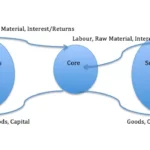Dementia poses a significant global health challenge, impacting millions of individuals and their families. Family physicians play a critical role in addressing this challenge, but often face uncertainty and hesitation in diagnosing and managing this complex condition. The General Practitioner Attitudes and Confidence Scale for Dementia (GPACS-D) offers a valuable tool to address these barriers. This article explores the GPACS-D, its development, application, and potential to enhance dementia care and ultimately improve patient well-being.
Understanding and Utilizing the GPACS-D in Dementia Care
Early and accurate diagnosis, coupled with ongoing support, can significantly impact the lives of individuals living with dementia. The GPACS-D serves as a valuable resource for general practitioners (GPs), designed to enhance their confidence and improve patient care. Let’s delve into the specifics of the GPACS-D and its practical application.
What is the GPACS-D?
The General Practitioner Attitudes and Confidence Scale for Dementia (GPACS-D) is a 15-item questionnaire that helps GPs assess their strengths and weaknesses in dementia care. It’s not a pass/fail test, but rather a tool for self-reflection and professional development. By identifying areas where they may need additional support or training, GPs can strengthen their ability to meet the challenges of dementia care.
How Does the GPACS-D Work?
The GPACS-D explores three key areas through 15 targeted questions:
| Area | Description | Example Question (Simplified) |
|---|---|---|
| Confidence in Clinical Abilities | How comfortable doctors feel diagnosing, managing, and interacting with patients who have dementia. | How confident are you in diagnosing different types of dementia? |
| Attitude to Care | How doctors view their role and responsibilities in providing care for people with dementia. | How important do you think it is for GPs to be involved in dementia care? |
| Engagement | How willing doctors are to actively connect with patients and their families. | How comfortable are you discussing sensitive issues related to dementia with patients and their families? |
Why is the GPACS-D Important?
Research suggests a strong correlation between a doctor’s confidence and their effectiveness in diagnosing and managing dementia. GP hesitation can lead to delayed diagnoses and missed opportunities for early intervention. The GPACS-D helps address this by pinpointing areas of uncertainty and facilitating targeted support. Just as a mechanic needs the right tools, a doctor needs the right knowledge and confidence to provide optimal care. The GPACS-D helps refine a GP’s “toolkit” for dementia care. In order to gain more insights on the rules guiding this area, it’s imperative to go through the guidey. More so, garrity warning should be prioritized.
Potential Benefits of Using the GPACS-D
By fostering GP confidence and preparedness, the GPACS-D can potentially lead to:
- Earlier and More Accurate Diagnoses: Increased confidence may improve the recognition of early dementia signs and enhance diagnostic accuracy.
- More Effective Treatments and Interventions: Greater confidence can translate to more appropriate and timely interventions, potentially improving quality of life.
- Better Patient Outcomes: The ultimate goal of the GPACS-D is to improve the lives of people living with dementia by supporting the GPs who care for them.
- Reduced Strain on the Healthcare System: Early diagnosis and effective management may help alleviate the burden on hospitals and other healthcare facilities.
Practical Applications of the GPACS-D
The GPACS-D has practical applications in various settings:
- Identifying Training Needs: Pinpointing specific areas where GPs could benefit from additional training or resources.
- Evaluating Training Programs: Assessing the effectiveness of dementia care educational programs.
- Improving Patient Care: Enhancing overall patient care by boosting GP confidence.
- Comparing Perspectives: Comparing GP attitudes and confidence with those of supervisors to identify potential experience or understanding gaps.
Future Directions in GPACS-D Research and Dementia Care
Ongoing research continues to explore the potential of the GPACS-D. While definitive conclusions are still evolving, preliminary findings are promising. Integrating the GPACS-D into existing strategies and developing targeted training programs are crucial steps toward ensuring individuals with dementia receive the highest quality care from confident and well-equipped GPs. This includes fostering a culture of continuous learning and improvement in dementia care.
Beyond Confidence: Empowering GPs to Navigate the Dementia Landscape
The GPACS-D offers valuable insights into GP perspectives on dementia care, revealing not only their confidence but also their overall attitudes towards diagnosis, treatment, and ongoing care. This information is crucial for identifying areas where support is most needed.
A strong correlation between GP confidence (as measured by the GPACS-D) and effective dementia diagnosis and management has been observed. Confident GPs are more likely to provide better care, including earlier diagnosis and more effective management strategies. However, confidence alone is not sufficient. Comprehensive support and training are essential to equip GPs with the practical skills and current knowledge necessary to navigate the complexities of dementia care. Confidence is like having a well-stocked toolbox; training teaches how to use those tools effectively.
Early studies suggest the GPACS-D effectively differentiates between GPs with varying levels of experience and training in dementia care. This is invaluable for tailoring professional development to individual needs. A newly qualified GP will likely require different training compared to a seasoned practitioner. This personalized approach ensures targeted support, fostering comfort and competence in delivering high-quality dementia care.
Key Takeaways: Dementia Care and the GPACS-D
- Assessment: The GPACS-D assesses GP perspectives on dementia care, highlighting areas for potential improvement.
- Confidence and Outcomes: Higher GPACS-D confidence scores are associated with better diagnostic accuracy and more effective care plans, ultimately improving patient outcomes.
- Addressing Hesitation: Some GPs might hesitate to engage with patients exhibiting cognitive decline due to lack of comfort or knowledge. Addressing these gaps is crucial for early intervention.
- Training and Support: Beyond confidence-building, ongoing training and up-to-date support are vital for equipping GPs with the multifaceted skills required for dementia care.
- Targeted Interventions: The GPACS-D facilitates personalized training programs by identifying specific areas where individual GPs need extra support.
Research in this field is ongoing. Our understanding of how best to support GPs in providing optimal dementia care continues to evolve. The GPACS-D is a valuable tool, but it represents one piece of a larger puzzle. Continuous learning and adaptation are essential to ensure that all individuals affected by dementia receive the best possible care.
Why Assessing GP Attitudes and Abilities Towards Dementia is Crucial
A doctor’s approach to dementia care can significantly impact the experience of individuals experiencing cognitive decline. Beyond medical knowledge, a doctor’s comfort level and beliefs about dementia play a significant role in patient interactions and care decisions. Assessing GP attitudes and abilities related to dementia is crucial, forming the foundation upon which effective care is built.
GPs often serve as the first point of contact for individuals concerned about memory problems, acting as gatekeepers to diagnosis, treatment, and support. If a GP lacks comfort discussing dementia or confidence in recognizing early signs, patients may face delays in receiving necessary help. This delay can have cascading effects, impacting the effectiveness of interventions and the emotional well-being of patients and families. Conversely, a confident and compassionate GP can empower patients and families to navigate the challenges of dementia more effectively.
Research indicates a clear link between GP confidence in handling dementia and the quality of care provided. Doctors who feel well-prepared are more likely to recognize subtle clues, conduct appropriate tests, and develop comprehensive care plans. This proactive approach can lead to earlier diagnosis and timely access to treatment, support services, and symptom management strategies.
The GPACS-D is one tool for gauging GP perspectives and skillsets related to dementia. It assesses a GP’s comfort level with dementia care, beliefs about the disease, and willingness to engage in dementia-related activities. This 15-item scale provides valuable insights into GP strengths and areas where they might benefit from additional support or training.
Assessing GP attitudes and abilities is not about judging or ranking doctors, but rather recognizing the complexity of dementia care and the benefits of staying current with research and best practices. Identifying areas for improvement allows for the development of targeted training programs to address specific gaps and empower GPs to provide optimal patient care. This might include workshops on communication strategies, updates on diagnostic criteria, or guidance on connecting patients with community resources.
Ultimately, assessing GP attitudes and abilities towards dementia is an investment in better care for all those affected. It’s about building a system where GPs feel confident and prepared to support their patients throughout the dementia journey. Dementia care requires a team effort, and GPs play a vital role in coordinating that team and ensuring comprehensive, compassionate care.
| Aspect of Assessment | Why it Matters | Potential Benefits |
|---|---|---|
| Confidence in Clinical Abilities | A confident GP is more likely to provide proactive and effective care. | Earlier and more accurate diagnoses, leading to timely interventions and improved patient outcomes. |
| Attitudes Towards Dementia Care | A GP’s beliefs and perceptions about dementia can influence their interactions with patients and their willingness to engage in dementia care. | A positive and proactive approach can empower patients and families. |
| Engagement in Dementia-Related Activities | A GP’s willingness to participate in continuing educationdemonstrates a commitment to providing the best possible care. | Improved knowledge and skills, leading to enhanced patient care and better outcomes. |
Research in dementia care is constantly evolving, emphasizing the importance of ongoing assessment and training. Fostering a culture of continuous learning and improvement within the medical community ensures everyone benefits from advancements in dementia care.
- Discover the Borough of Frenchtown, NJ: A Delaware River Town Blending History, Art & Nature - November 22, 2024
- Discover Clarks Grove, MN: A Small Town with a Big Heart - November 22, 2024
- Califon Borough, NJ: A Small Town with a Big Heart (and Rich History) - November 22, 2024














1 thought on “Improving Dementia Care: Using the GPACS to Enhance GP Confidence and Patient Outcomes”
Comments are closed.